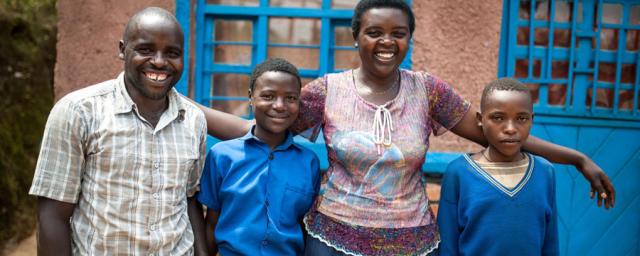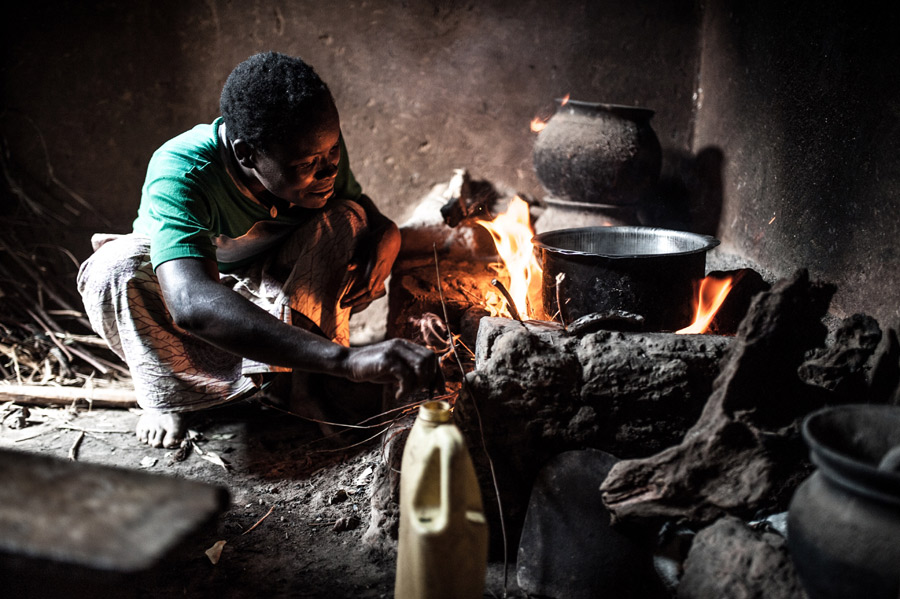
In Rwanda, 45% of people live in poverty and rely on small-scale farming. There is no gas or electricity so women and their children spend hours every day collecting water and firewood, which traps them in a cycle of poverty.
There is an effective solution that can change many families’ lives completely: a biogas digester (a tank that converts organic waste into gas). Pig poo is placed in the digester and the methane is piped into the family's kitchen for cooking.
Christine Manirafasha lives with her husband and two children in Rutabo Cell, Rwanda. She is one of the beneficiaries of this project supported by Oxfam and local partners. Before the biogas plant, she used to wonder how someone could do anything else than household chores.

“When using firewood, I must stay close to the cooking stove to check over the fire. Imagine for food like beans, it takes almost 3 hours to be cooked. Besides that, dishes and all utensils were very dirty due to the smoke from the fire. I used to go to bed with red eyes from itching them as I had spent such a long time in the smoke. I was almost all the time sneezing and coughing a lot, due to the smoke. At the end of the day, I was exhausted and could hardly do anything else. This was my normal way of cooking - I never felt like there would never be smoke”, she says.
Christine is a tailor but she was spending more time cooking than taking care of her own business. Therefore she was not making any significant income and her husband was struggling alone to meet the household needs.
The change happened
After receiving the Bio digester plant from Oxfam, Christine narrates how life has completely changed.
“I saved a lot in terms of money and time. Today, I don’t spend much time in cooking and no time at all collecting firewood. I only prepare the food, put it in a container on the stove, and then adjust the quantity of biogas that it needs to be cooked”, she says.
“The money and time I saved, I invested them in other businesses and it is increasing our income. I used to spend on buying firewood; I use it in other projects. I have started a poultry project, bought some other piglets, turkeys, rabbits. Moreover, I have plenty time to work in my tailoring workshop”, Christine adds.

Christine taught all that she learned to her husband, Claude. With more time and income, Christine and Claude can send their children to school and pass on the progress to the next generation, too.
“The plan I have for my children is to encourage them to go to school, and when they finish, I will tell them to get trained in a vocation.” They can build themselves a future full of opportunity.
Ending poverty for women. Stop #Unpaidcarework
A recent study conducted in Rwanda by Oxfam in partnership with the University of Rwanda showed that unpaid care work is one of the biggest causes of time poverty for women. The findings revealed that for every one hour a man spends on domestic chores, thus unpaid care work, a woman spends three hours.
Oxfam in Rwanda in partnership with local organizations is developing models that should help reduce this time poverty for women. This will allow women more time to participate in an inclusive development of both their families and their country at large.